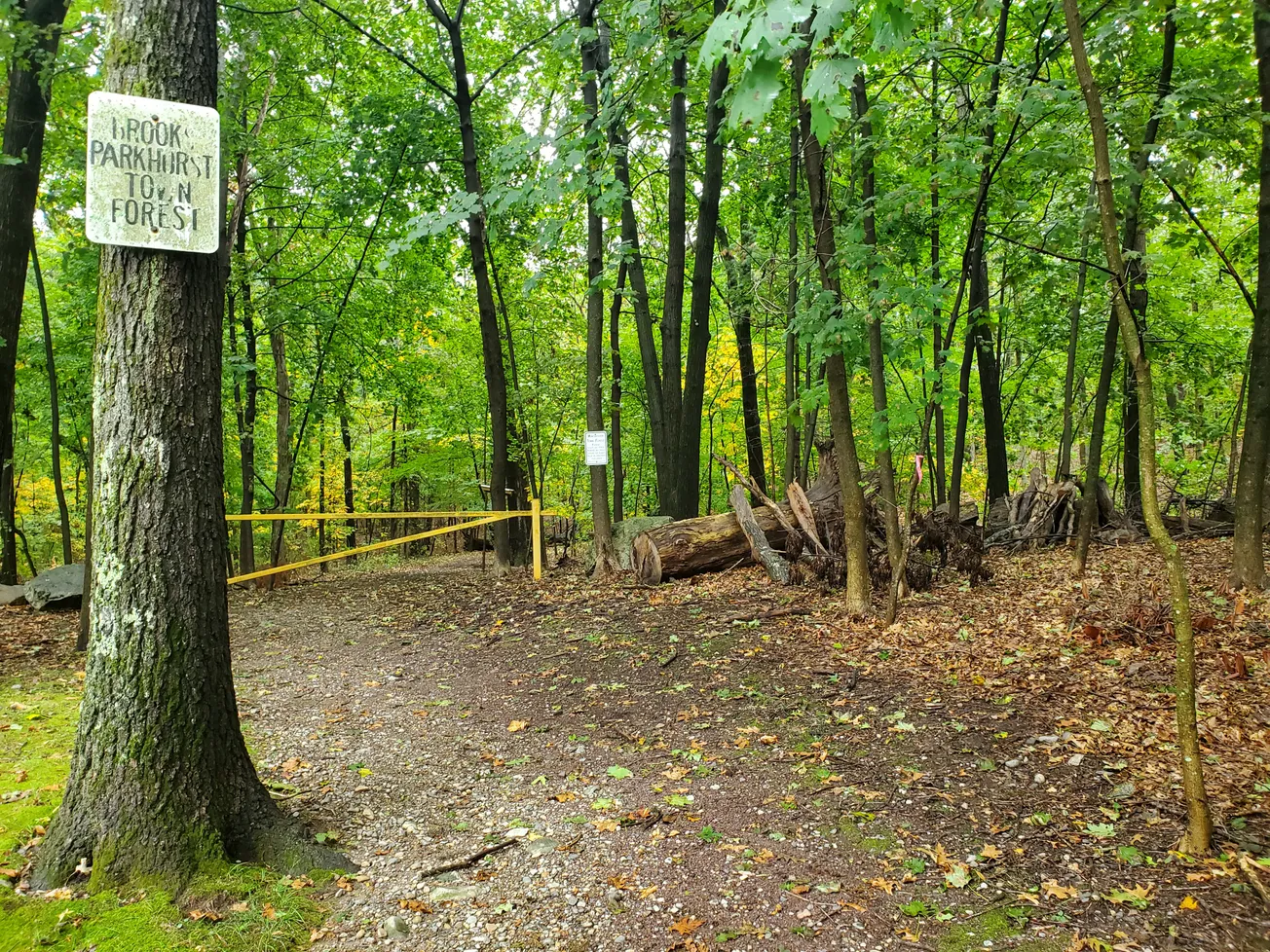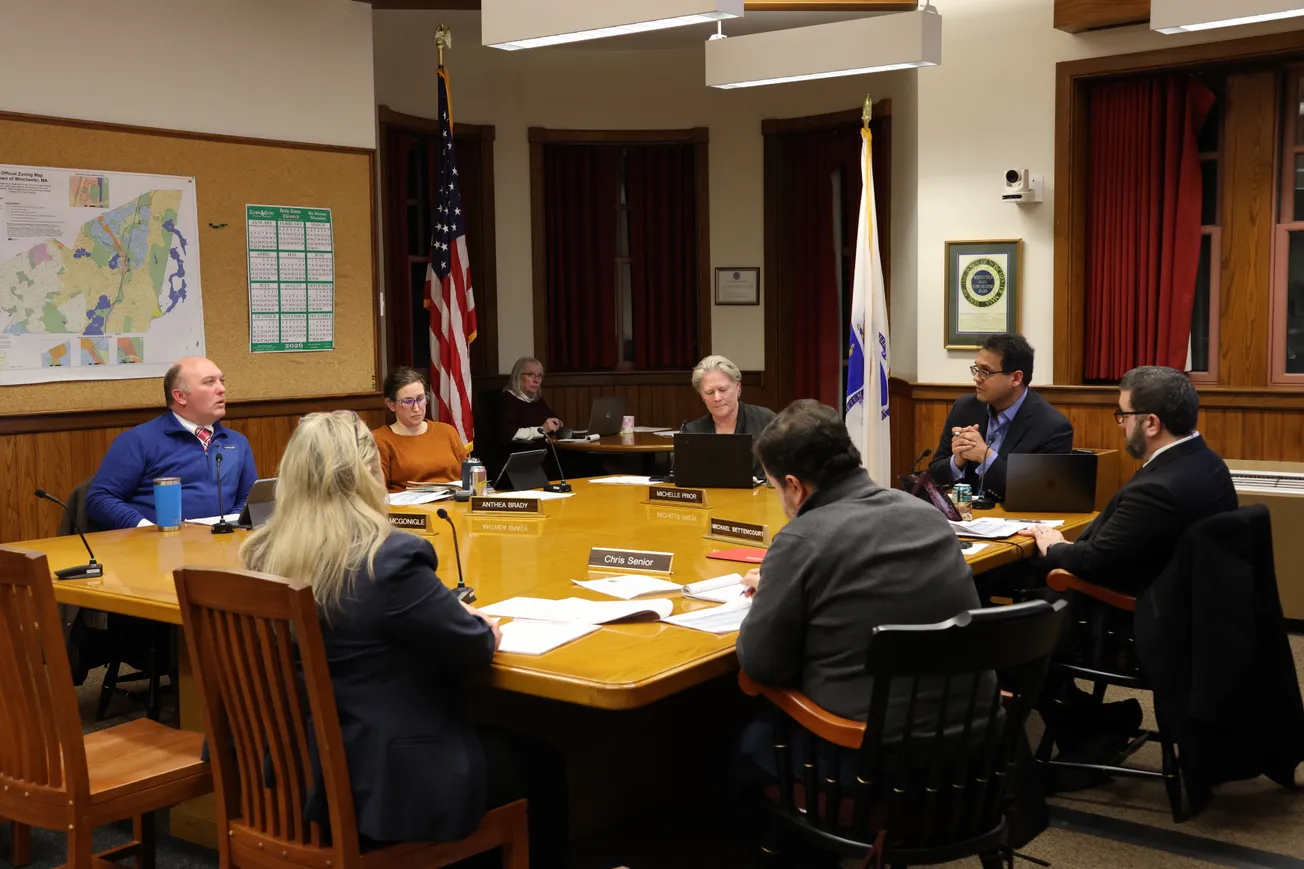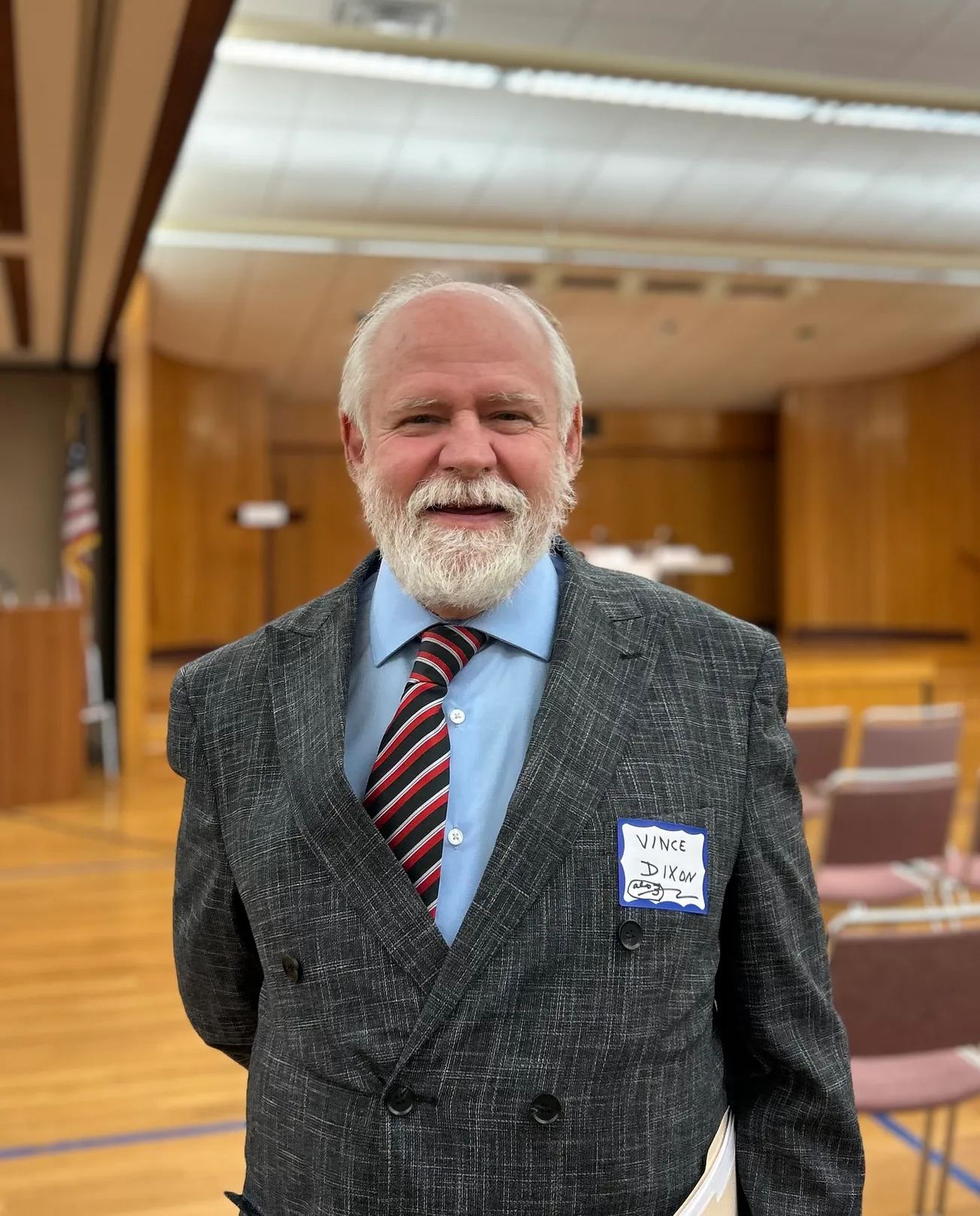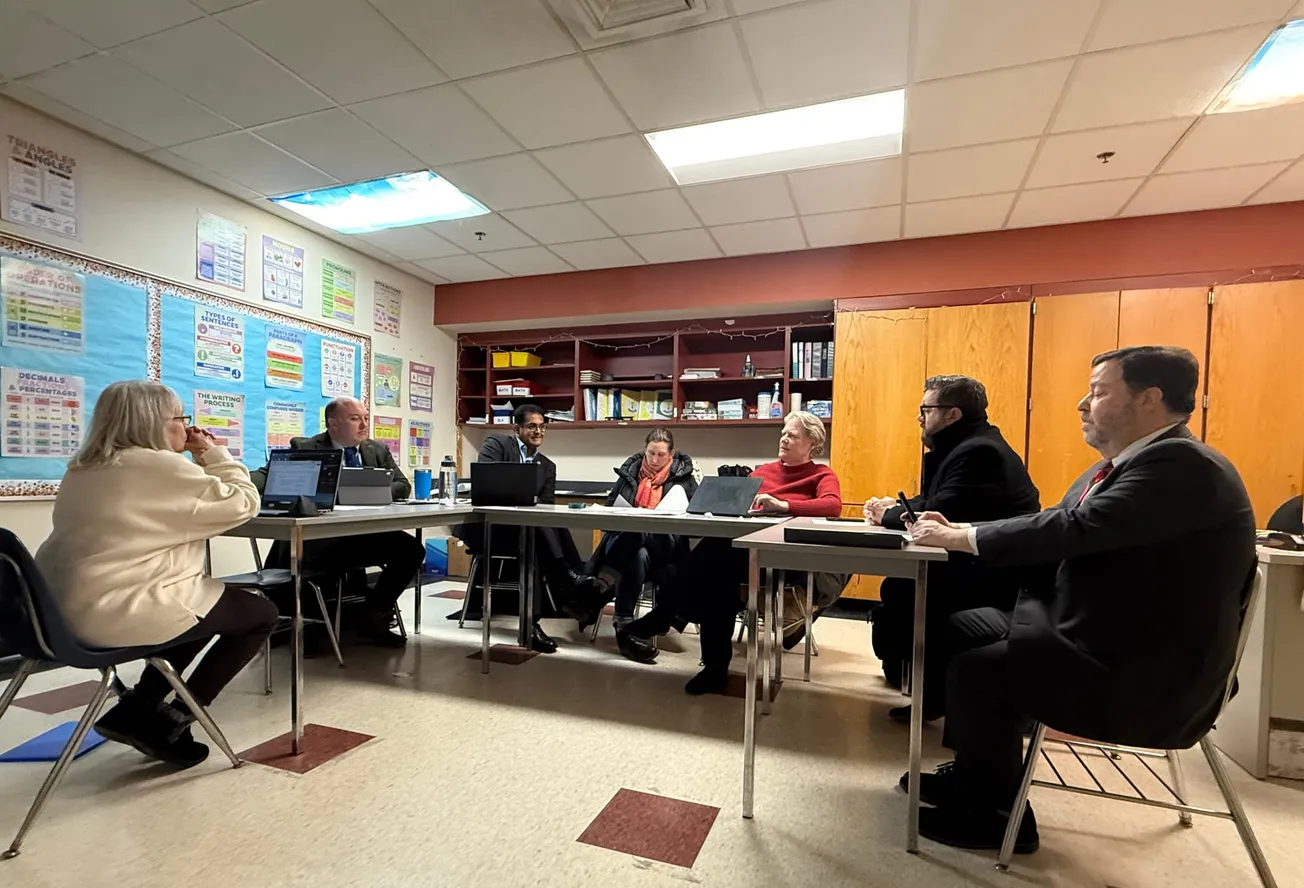Table of Contents
The Winchester Conservation Commission will host a public meeting Oct. 30 at 7 p.m. to gather feedback on a forest stewardship plan for the 29-acre Brooks Parkhurst Town Forest, the first step in a broader effort to protect and manage nearly 150 acres of conservation land across town.
Consulting forester Mike Fleming will attend the meeting in the Winchester Room at Town Hall to answer questions and collect input on management goals for the property.
The commission secured a $3,740 state grant to develop the plan, which will address forest health, climate resilience, wildlife habitat and recreational opportunities. It is scheduled for completion in January 2026.
“It needs some help,” said Tracy Olson, chair of the Conservation Commission. “It needs some work in terms of looking forward and keeping the forest healthy over time, especially with climate change.”
Town Forest history
The commission selected the Town Forest as its starting point because of its size, accessibility and conservation needs. The property features trails and borders residential areas on three sides, making it popular with scout troops and walkers.
With entrances off Chardon Road and Ox Pasture, the forest was part of land granted to the Brooks family by King Charles I of England in the 1600s. After 300 years in the family, Winchester acquired most of the property in 1941 from the estate of Clare Brooks. Part came as a gift, part as a town purchase. The deed specified the land was to be used for the “culture of forest trees.”
In the 1950s and 1960s, neighbors donated additional land on the north side. Richard Parkhurst, a local resident, played a key role in acquisitions and management during that period.
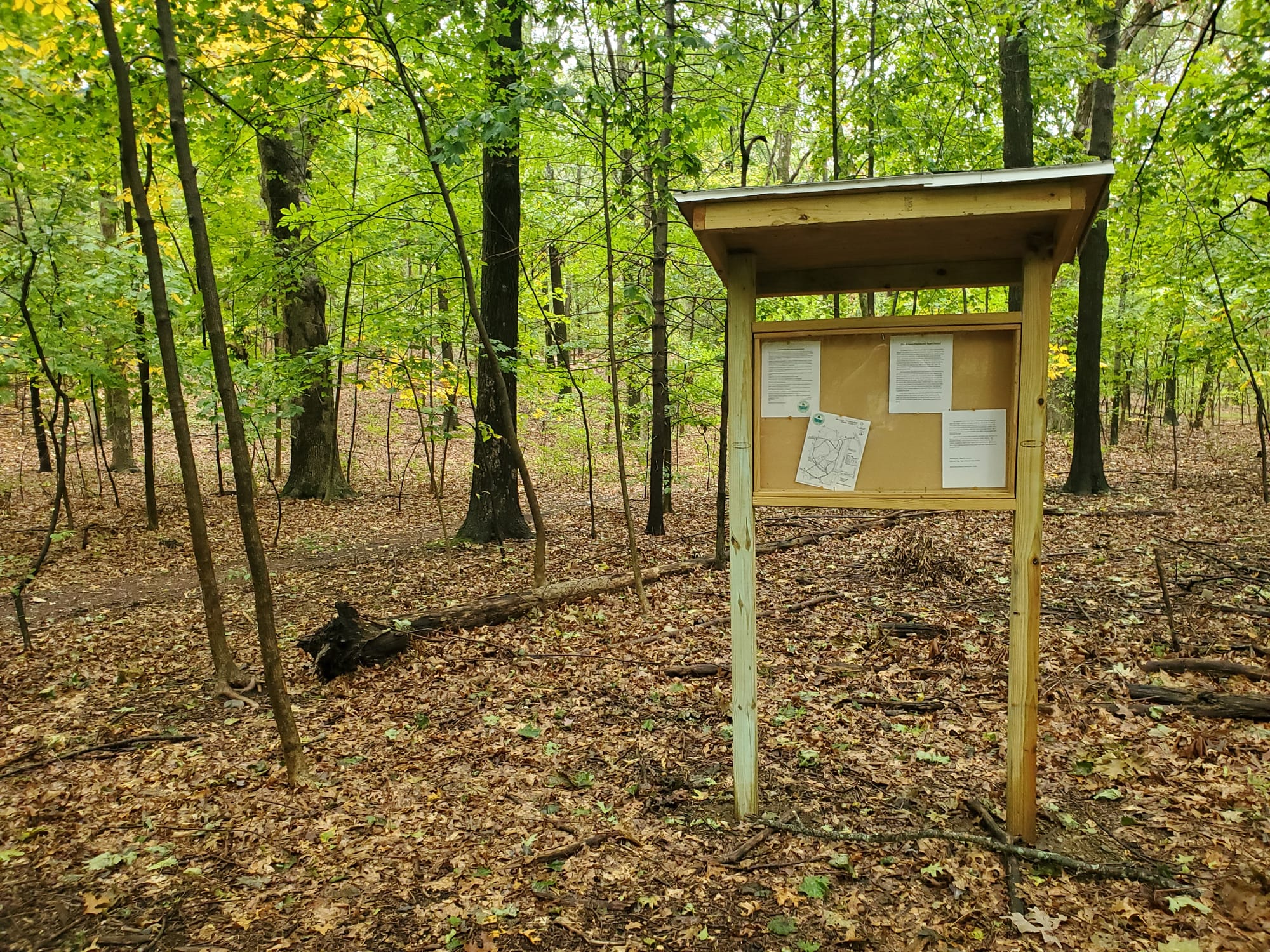
The forest includes hemlocks, oaks and white pines, though many mature trees are dead or dying from age and hemlock woolly adelgid disease. Dead trees provide wildlife habitat, and canopy gaps allow younger trees to grow.
A loop trail circles the forest, passing granite blocks salvaged from the abandoned Middlesex Canal and seasonal streams with wildflowers and wetlands.
State program covers most costs
Each part of the stewardship plan qualifies for state reimbursement through the Department of Conservation and Recreation’s ForestsWork program, which covers 75% of planning costs.
“The state reimburses for just a general forest stewardship plan,” Olson said. “If you want to add a plan to enhance bird and wildlife habitat, that’s extra. And then the climate resilience is a third piece that it costs extra that the state reimburses for.”
Fleming has more than 30 years of experience at local, regional and state levels in conservation and forest management. The plan will function as a 10-year nonbinding roadmap and will make the town eligible to apply for state grants to implement practices.
Volunteer Liz Scott identified the ForestsWork program and guided the commission through requirements.
“The application procedure was fairly simple,” Olson said. “And the state website was awesome. It has lots of great information.”
Olson praised Gov. Maura Healey’s administration for expanding ecological programs and making technical resources more accessible to municipalities.
Conservation land across town
Winchester maintains nine conservation areas totaling nearly 150 acres. Winning Farm, another 29-acre parcel, presents access challenges. Sucker Brook spans 14 acres with steep terrain, while Mount Pisgah covers 11 acres.
Once the Town Forest plan is complete, the commission intends to pursue similar plans for Winning Farm and Sucker Brook. The phased approach allows the town to build expertise while securing funding.
Current management activities for Town Forest include trail upkeep, invasive species control, boundary marking and signage. The heaviest buckthorn invasion occurs near the loop trail and neighboring houses. Control efforts will focus inside the loop.
Aerial photos show possible encroachments at 10 Briarwood Lane and 20 Sussex Road, where property owners appear to have expanded yards onto conservation land. Similar encroachments were noted along North Gateway.
The stewardship effort complements a February 2025 Mass Audubon assessment that described all nine conservation areas with historical context and current conditions.
Climate resilience a priority
The commission has identified forest health and recreational access as priorities as climate change threatens tree species and pressures natural areas.
Projections show that very hot days above 90 degrees in Massachusetts will rise from about 10 per year to more than 20 by 2050. Trees provide relief through shade and evapotranspiration, releasing thousands of gallons of water per year.
Mature trees can lower neighborhood temperatures by up to 10 degrees during heat waves. Each tree also absorbs 500 to 1,000 gallons of rainwater per year, reducing flooding. Roots stabilize soil and prevent erosion, a concern in Winchester’s V-shaped terrain that funnels water into the Aberjona River and nearby neighborhoods.
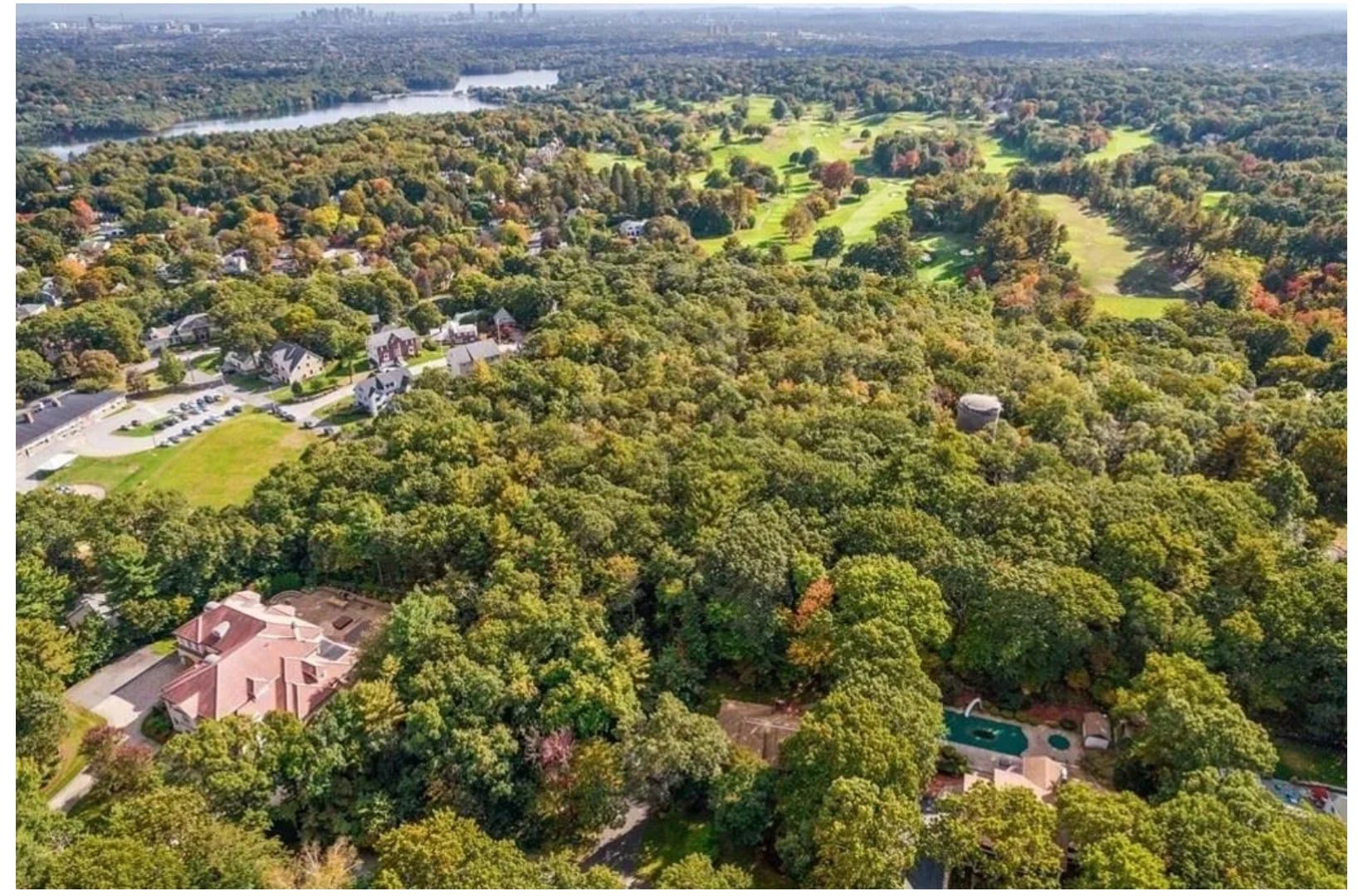
Winchester’s 2022 Heat Response Strategy and the National Institutes of Health identify tree preservation as central to protecting vulnerable residents, especially adults over 65 living alone without air conditioning.
The Town Forest also adjoins the 47.6-acre Brooks Estate in Medford, permanently protected since 1998. Together the areas provide habitat for birds and small mammals.
“I think in 10 years we will have better trail markings,” Olson said. “We will have more wildlife in the forest, [plus] hopefully a larger variety of birds. And I think we’ll have a healthier forest that is capable of withstanding some of the pressures that climate change is going to bring.”
Residents can review the agenda on the Conservation Commission website at winchester.us.
Will Dowd is a Massachusetts journalist who covers municipal government and community life for Winchester News. He previously co-founded the Marblehead Current and now runs The Marblehead Independent, a reader-funded digital newsroom.

